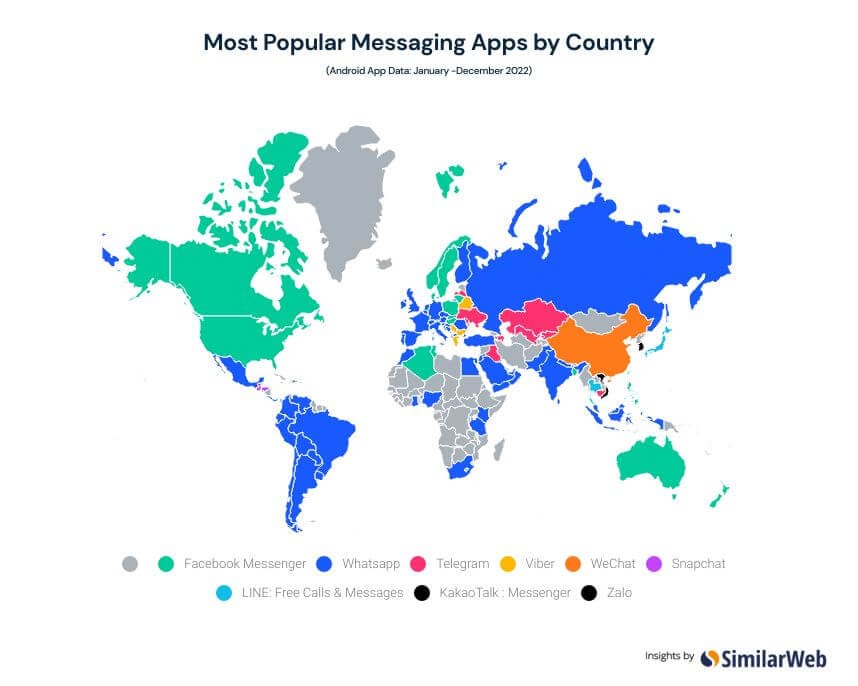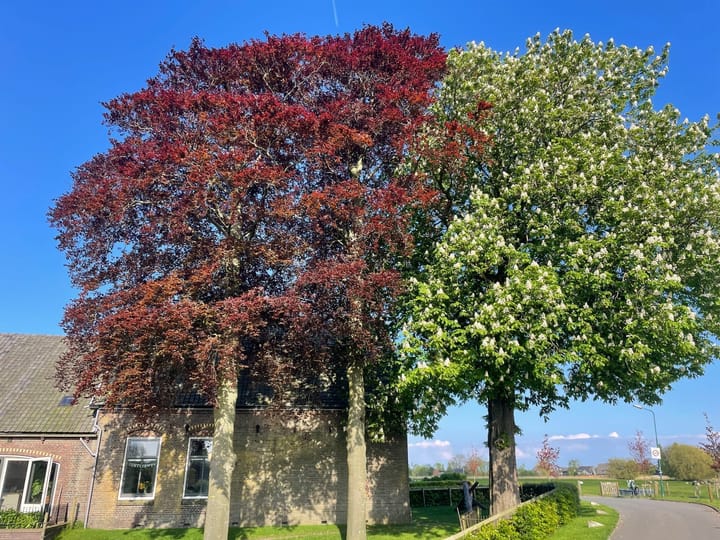WhatsApp's Global Reach
Explore WhatsApp's strategic dominance in the global messaging market, from the US to India.

As a web strategist deeply involved in the digital communications landscape, I've observed the fascinating evolution of messaging apps over the years. Each app offers unique features that resonate differently across global markets.
While the right messaging channel for a global strategy varies, WhatsApp has positioned itself as a robust contender. Let me sketch out the global situation for you.
A Diverse Messaging Ecosystem
In the vast landscape of digital communication, several key players dominate particular regions. In the United States, iMessage and Facebook Messenger have long held sway due to their integration with widely used platforms like iOS and Facebook. However, WhatsApp has recently made significant inroads. From 2019 to 2023, its user base in the US is projected to grow from 68.1 million to 85.8 million, largely driven by its simplicity and the increasing need for international communication.
Across the Atlantic, in Europe, WhatsApp's dominance is more pronounced. It is the go-to app for not just messaging but also voice and video calls, a testament to its reliability and feature-rich experience. Moving east, WeChat rules the roost in China, where WhatsApp faces a ban due to strict government regulations. WeChat isn't just a messaging app; it's an all-encompassing platform for social media, payments, and more, deeply integrated into the daily life of the Chinese people.

WhatsApp's Strategic Positioning
Despite the regional preferences for different apps, WhatsApp's global footprint is impressive. Its widespread adoption in over 180 countries makes it a pivotal player in the international messaging arena. WhatsApp's end-to-end encryption and constant roll-out of new features, such as business accounts and payment services, make it particularly appealing in markets that value privacy and multifunctionality.
For instance, in Latin America and Africa, WhatsApp is not just a communication tool but a critical part of economic and social infrastructures. In India, it has transformed into a platform for digital payments and small business operations, helping to drive local economies.
My View on the Global Messaging Landscape
From my perspective, the choice of messaging app for a global communication strategy should be informed by the target audience's location and preferences. While WhatsApp offers an expansive reach and a robust set of features, it's essential to consider regional favorites. Tailoring communication strategies to include local preferences can enhance user engagement and effectiveness.
For businesses looking to expand internationally, leveraging WhatsApp's extensive network can provide a significant advantage. However, it's also crucial to stay adaptable and consider integrating other popular regional apps into the communication mix to ensure comprehensive coverage.
My conclusion
In conclusion, the global messaging app landscape is diverse and dynamic. WhatsApp, with its significant global presence and continuous enhancements, is well positioned for those seeking a broad reach. Yet, the key to a successful global approach lies in understanding and integrating the nuances of regional preferences. As we navigate this ever-evolving space, staying informed and flexible is paramount.



